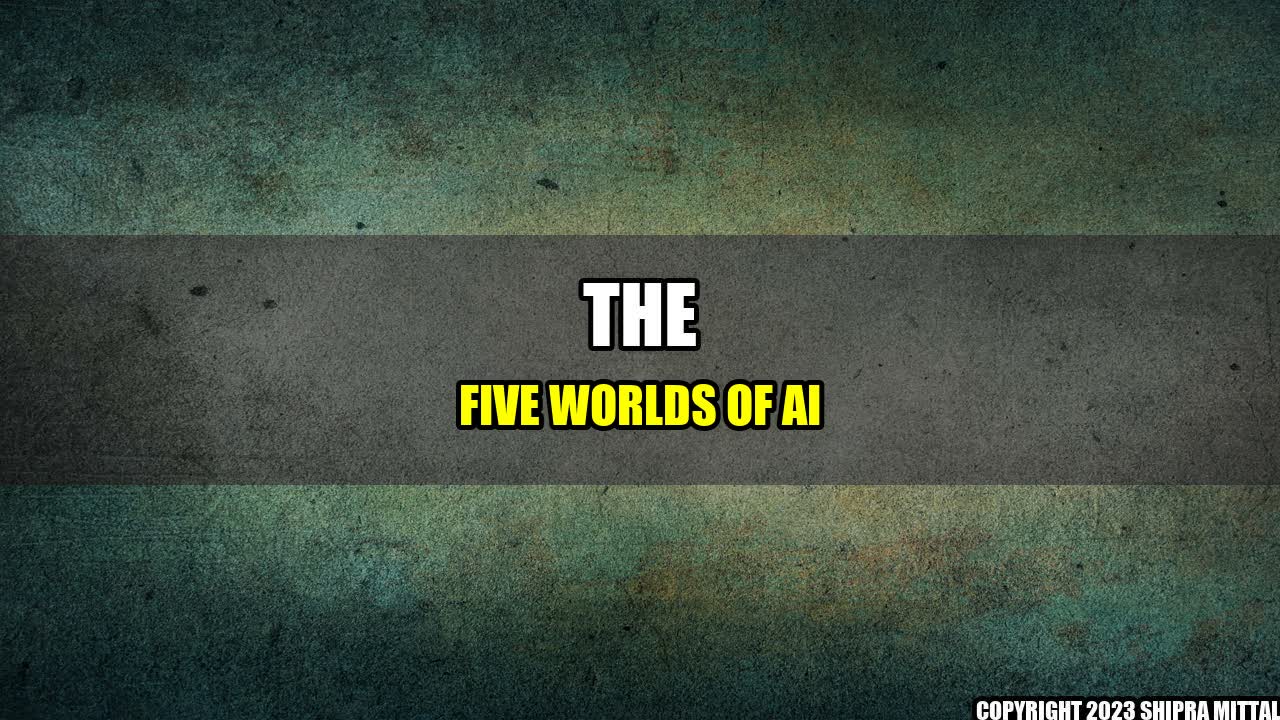It was 2010 and John Smith, a truck driver from Nebraska, was on his way home from work when he saw a truck accident up ahead. As he approached the scene, he realized that the truck driver had lost consciousness and his foot was still on the gas pedal. John knew he had to act fast before the truck could cause more damage.
He quickly pulled out his smartphone and used an app to contact the emergency services. Within minutes, a drone arrived on the scene, guided by a real-time AI system that had analyzed the data from the app and the drone's sensors to provide a coordinated response.
John was amazed at how seamlessly the different technologies had worked together to save the day. And it wasn't the only time he would witness the power of AI in action.
The Five Worlds of AI
As John discovered, AI is becoming an integral part of our lives, from personal assistants to self-driving cars, from medical diagnosis to financial forecasting. But not all AI applications are created equal. In fact, there are five distinct worlds of AI, each with its own challenges and opportunities:
- Augur - the world of predictive analytics, where AI is used to analyze data and make predictions about future trends and events;
- Human-Aware AI - the world of understanding human language and behavior, where AI technologies are used to interpret and respond to human speech, emotions and intentions;
- Cognitive Computing - the world of intelligent machines, where AI systems can learn and reason like humans, and make decisions based on complex data sets;
- Deep Learning - the world of neural networks, where AI systems use algorithms to learn from unstructured data sources such as images, speech and text;
- Conversational AI - the world of chatbots and virtual assistants, where AI technologies are used to simulate human conversations and provide personalized assistance to users.
Real-Life Examples
Each of these worlds has its own set of innovators and pioneers, as well as a range of real-life examples that illustrate the potential of AI:
- Augur - companies like Augur, Kaggle and Ayasdi use AI to make predictions about everything from stock prices to election outcomes;
- Human-Aware AI - Google, Microsoft and Amazon are among the companies using AI chatbots to provide customer service, while others are developing emotion recognition software to analyze facial expressions and tone of voice;
- Cognitive Computing - IBM's Watson platform is used to analyze vast amounts of data in fields as diverse as healthcare, finance and legal research;
- Deep Learning - companies like Google, Facebook and Tesla are developing self-driving cars that use AI to analyze the environment and make decisions in real-time;
- Conversational AI - Apple's Siri, Amazon's Alexa and Google Assistant are among the most popular virtual assistants, with millions of users worldwide.
Critical Comments
- AI still lacks transparency, which can lead to bias and discrimination in decision-making;
- The use of AI in areas like healthcare and finance raises ethical and privacy concerns;
- There is a risk that AI could replace human workers and exacerbate existing economic inequalities.

Akash Mittal Tech Article
Share on Twitter Share on LinkedIn